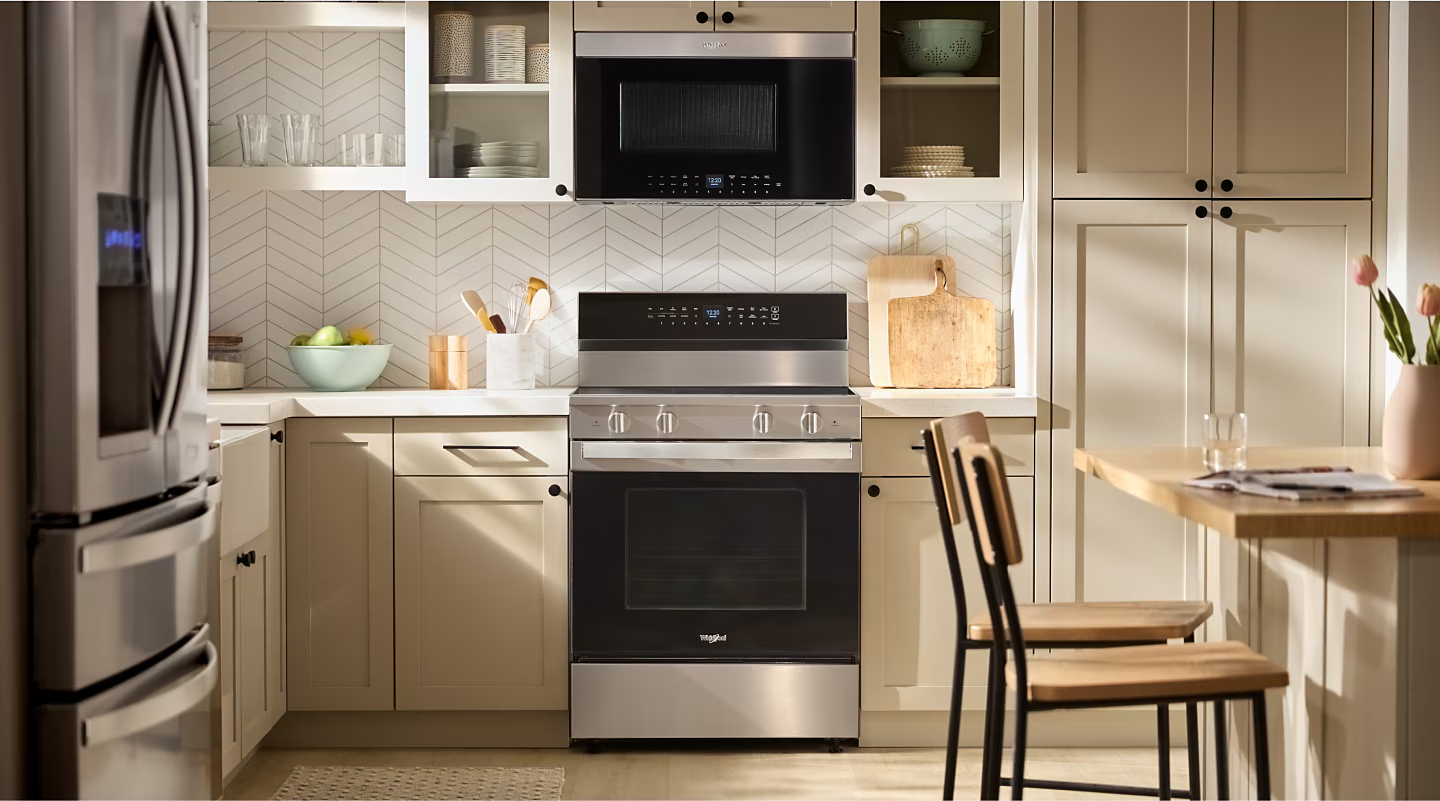In modern households the choice of kitchen appliances plays a significant role in energy consumption and sustainability. Among these appliances electric ranges stand out as a staple for cooking. But how efficient are they and how do they contribute to a greener lifestyle? This article delves into the efficiency of electric ranges exploring their benefits energy-saving features and how they compare to other cooking solutions.
What Is an Electric Range?
An electric range combines an oven and a stovetop powered by electricity offering a versatile solution for cooking baking and broiling. They are available in various styles from traditional coil burners to modern smooth-top designs with induction technology. Electric ranges have evolved significantly now equipped with features designed to enhance performance and efficiency.
The Advantages of Electric Ranges
1. Energy Efficiency
Electric ranges are designed to convert electricity directly into heat resulting in minimal energy loss during the cooking process. Unlike gas ranges which lose energy through open flames electric models distribute heat evenly across their surface ensuring optimal usage.
2. Precision Cooking
Advanced electric ranges especially those with induction cooktops offer precise temperature control. This precision reduces the risk of overcooking thereby conserving energy and improving the quality of food preparation.
3. Safer Operation
Electric ranges eliminate the need for combustible gas making them a safer choice especially in homes with children. Many models also come with safety features such as automatic shut-off and residual heat indicators.
4. Low Maintenance
Compared to gas ranges electric models require less maintenance. Smooth-top stoves are easy to clean and the absence of burners and gas lines reduces the need for frequent repairs.
How Electric Ranges Promote Sustainability
Switching to an electric range can significantly reduce your household’s carbon footprint. Here’s how:
Reduced Greenhouse Gas Emissions
Electric ranges do not produce direct emissions like gas stoves contributing to a cleaner indoor air environment and reduced greenhouse gas output.
Integration with Renewable Energy
Electric ranges can be powered by renewable energy sources such as solar panels further enhancing their eco-friendliness. This compatibility allows households to achieve energy independence while promoting environmental sustainability.
Longer Lifespan
Modern electric ranges are built to last. With proper maintenance they can serve your household for decades reducing the frequency of replacements and the waste associated with discarded appliances.
Features Enhancing Electric Range Efficiency
1. Induction Technology
Induction cooktops are at the forefront of electric range efficiency. Using electromagnetic energy they heat cookware directly minimizing heat loss and cooking food faster.
2. Convection Ovens
Convection technology uses fans to circulate hot air inside the oven reducing cooking times and ensuring even heating. This feature is particularly beneficial for baking and roasting.
3. Energy-Saving Modes
Many electric ranges include energy-saving settings such as eco-modes or timers that optimize power consumption during use.
4. Smart Features
Some electric ranges are equipped with smart technology enabling users to monitor and control cooking remotely. These features help avoid overuse of energy and provide insights into energy consumption patterns.
Electric Ranges vs. Gas Ranges
When comparing electric and gas ranges efficiency and environmental impact often emerge as deciding factors.
| Feature | Electric Ranges | Gas Ranges |
|---|---|---|
| Energy Efficiency | High (especially with induction) | Moderate |
| Operating Costs | Lower with renewable energy integration | Potentially lower with cheap gas |
| Environmental Impact | Cleaner renewable-friendly | Higher due to greenhouse emissions |
| Temperature Control | Highly precise with induction models | Immediate heat adjustment |
| Maintenance | Easier | Requires regular burner cleaning |
While gas ranges may appeal to traditionalists electric ranges are increasingly the go-to choice for environmentally conscious homeowners.
Challenges of Electric Ranges
While electric ranges have numerous advantages they are not without challenges:
- Higher Upfront Costs: Advanced models with induction technology can be more expensive initially.
- Dependence on Electricity: During power outages electric ranges become non-functional unless backed by an alternative energy source.
- Cookware Compatibility: Induction ranges require compatible cookware which may involve additional expenses.
Promoting Energy Efficiency Through Electric Range Conversions
If you’re looking to upgrade your kitchen while maintaining efficiency consider converting your existing cooker into an electric range. Rural Ranges offers expert electric conversion services tailored to your specific needs. With various options available you can enhance your appliance’s performance while reducing its environmental footprint.
Discover more about electric conversions and how they can transform your kitchen by visiting Rural Ranges Electric Conversions. Their solutions combine innovation and sustainability making them the ideal partner for your kitchen upgrade.
Tips to Maximize Electric Range Efficiency
1. Use the Right Cookware
Opt for flat-bottomed and energy-efficient cookware particularly for induction ranges. The better the contact the more efficiently heat is transferred.
2. Leverage Residual Heat
Turn off the burners a few minutes before cooking is complete to take advantage of residual heat. This practice conserves energy without compromising the final results.
3. Keep the Range Clean
A clean range operates more efficiently. Residue on burners or cooktops can block heat transfer increasing cooking times and energy use.
4. Use the Right Burner Size
Match the size of the pot to the burner to minimize energy waste. Using a small pot on a large burner leads to unnecessary energy loss.
The Future of Electric Ranges
The continued advancement of electric range technology promises even greater efficiency. Features such as AI-driven cooking assistants enhanced induction capabilities and integration with home energy systems are set to revolutionize how we cook and consume energy.
Conclusion
Electric ranges represent a smart sustainable choice for modern kitchens. Their efficiency safety and adaptability to renewable energy make them an invaluable asset for eco-conscious households. Whether you’re considering an upgrade or a complete conversion electric ranges offer a compelling case for energy-efficient living.
As you embark on this journey consider exploring the Agas for their blend of tradition and innovation. From classic designs to cutting-edge electric options they cater to diverse needs ensuring a seamless and efficient cooking experience.
